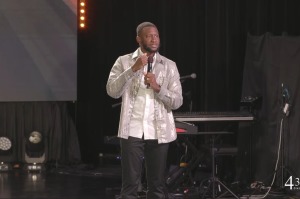Words to Learn By
In my years studying leadership and evaluating leaders, I have stumbled across a leadership shortcoming that continually amazes me. Leaders will manage a team, work with the same individuals every day, yet hardly know anything about their people! These leaders have never prioritized acquainting themselves with the dreams, thoughts, hopes, opinions, and values of those they lead.
The best leaders are readers of people. They have the intuitive ability to understand others by discerning how they feel and recognizing what they sense.
I have found that leaders overestimate the amount of time and effort needed to get to know someone. In fact, in only one hour with you in private conversation, I could, probably by asking three questions, find the passion of your life:
What do you dream about?
A person's dreams are powerful revealers of passion. When a person starts to talk about their dreams it's as if something bubbles up from within. Their eyes brighten, their face glows, and you can feel the excitement in their words.
What do you cry about?
Passion can be uncovered by peering into the hurts deep inside a human soul. The experience of pain or loss can be a formidably motivating force. When listening to a story of grief, you hear a voice thick with emotion, you see watery eyes flooded with feeling, and in that moment you glimpse the intense connections between a person's deepest pain and their greatest passion.
What makes you happy?
I have fun hearing what makes people tick and seeing the smile that comes when they talk about where they find joy. Enjoyment is an incredible energizer to the human spirit. When a person operates in an area of pleasure, they are apt to be brimming with life and exuding passion.
If you can uncover a person's dreams, hurts, and joys, you've discovered the central dimensions of their life. This lesson is designed to show you the types of questions that can draw out the passion inside of a person. I've included my own answers to give you an understanding of how the process works. Try to limit your answers to one or two words. Also, notice how each question is asked both positively (what makes you happy) and negatively (what makes you cry). I have found that by expressing opposite feelings and emotions, you reveal your true inner self.
To maximize this lesson, I'll give you four easy assignments.
1. Ask yourself and answer the questions posed in the lesson. In doing so, you'll enhance your self-awareness.
2. Share your answers with your team to allow them to learn about you.
3. Ask your team to answer the questions to encourage their self-discovery.
4. Ask your team to share their answers with one another. This practice will bring team members closer together.
What is your biggest asset?
My greatest asset is my attitude. I discovered this when I was in high school, and the coach of my basketball team appointed me as team captain at the beginning of the year.
I was surprised, because I wasn't the best player on the team. John Thomas was the best player. I was the second or third best player, but I wasn't the best. I was sitting on the floor of the gymnasium with my teammates, and I think the same question was in all of our minds—why is John Maxwell going to be the captain of the team? Anticipating our questions, our coach gave an explanation, "Of all the players on this team, the kid with the best attitude is John Maxwell. He doesn't get discouraged, he believes that we'll win the game, and he's going to be the captain of the team."
What is your biggest liability?
My biggest liability is unrealistic expectations. As with many weaknesses, my unrealistic expectations are the Achilles Heel of my strength.
Many years ago I quit hiring, and I have stayed away from it ever since because I'm a terrible hirer. Why? Because I naturally look for the best in people. When I see a potential employee, I see the raw talent, and I begin thinking how I can help shape the person into a star. I've had numerous failures hiring lousy leaders because I convinced myself I could mold a flawed leader into a top performer.
What do you like most from others?
For me, it's encouragement. Encouragement is the oxygen of the soul, in that it allows you to breathe. Encouragement supports and sustains leadership, especially during the hard times.
What do I like least from others?
I cannot stand people who make excuses—blamers, complainers, and explainers who refuse to accept responsibility for their mistakes.
I admire a person who will admit their faults since it shows me the inner character of that individual. I can accept another's imperfection if they take ownership of their errors because we're all human, and we all fail from time to time.
What is the best thing to have?
I think the best thing to have is friends. For me nothing compares to the joy and fulfillment of going through life with friends you can laugh with, cry with, and celebrate alongside.
What is the worst thing not to have?
I can't imagine a life without hope. Even if my health is failing or my financial situation is grim, if I have hope, I can see a way out of my difficulties.
Hope is the foundation of all change. When people come to me as leaders and they say, "I want to create change within my organization. What should I do?" My response is the obvious answer, "You have to create hope." Nobody changes unless they think life is going to improve. Hope is the motivation that allows people to change.





























